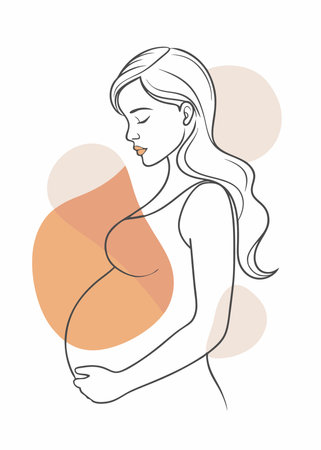Understanding Baby Poisoning
As a dad, one of my biggest fears is seeing my little one get into something dangerous around the house. When we talk about “baby poisoning,” we mean a situation where a baby has swallowed, inhaled, or come into contact with something toxic. Babies are naturally curious—they explore their world by putting things in their mouths, which makes them especially vulnerable to accidental poisoning.
Common household items can be surprisingly risky. Everyday products like cleaning supplies, laundry pods, medications (even vitamins), cosmetics, and even some plants can be harmful if ingested or touched. Because babies are much smaller than adults, even tiny amounts of these substances can cause serious health problems quickly.
Infants are at higher risk for a couple of reasons. First, their bodies and organs are still developing, so they can’t process toxins as efficiently as older kids or adults. Second, they don’t know what’s safe or dangerous—everything looks interesting to them! That’s why it’s so important for parents and caregivers to understand what poisoning means for babies, recognize the risks that exist right at home, and know what steps to take if something happens.
2. Recognizing the Signs of Poisoning in Babies
As a dad, one of the scariest things is not knowing if your baby is just having a rough day or if something serious, like poisoning, is happening. Quick action starts with knowing what to look for. Babies can’t tell us what’s wrong, so it’s up to us parents to spot those warning signs early. Here are some key symptoms and changes you should keep an eye out for:
| Symptom | What to Watch For |
|---|---|
| Breathing Changes | Sudden rapid breathing, wheezing, struggling to breathe, or unusually slow/shallow breaths. |
| Skin Color | Pale, bluish (especially lips or face), or unusually red/flushed skin. |
| Behavioral Changes | Unusual fussiness, excessive sleepiness, unresponsiveness, confusion, or irritability that’s out of character. |
| Physical Responses | Vomiting, diarrhea, drooling more than usual, seizures, or muscle twitching. |
If you notice any combination of these symptoms—especially if they appear suddenly—trust your gut and take action fast. Babies’ bodies react quickly to toxins, so don’t wait to see if things get better on their own. Remember: you know your child best. If something feels off, it’s always better to be safe and check in with a medical professional.

3. Immediate Actions to Take at Home
Step-by-Step Guide for Parents
If you suspect your baby has swallowed, inhaled, or come into contact with something poisonous, staying calm is crucial. Here’s a step-by-step guide for what you should—and shouldn’t—do right away.
Step 1: Remove Your Baby from Danger
Take your baby away from the source of poisoning immediately. If there’s any remaining substance in their mouth, carefully remove it with your finger. Avoid putting your own fingers deep into their throat to prevent choking.
Step 2: Check Their Condition
Assess if your baby is conscious and breathing normally. Look for symptoms like drooling, vomiting, difficulty breathing, or unusual drowsiness. This will help you decide on the urgency of further action.
Step 3: Do Not Induce Vomiting
No matter what you may have heard, never try to make your baby vomit unless specifically told to do so by a medical professional or Poison Control. Vomiting can sometimes make things worse, especially if the substance is corrosive.
Step 4: Identify the Poison
If possible, figure out what your baby was exposed to—read the label and keep the container or sample handy for first responders or Poison Control. Don’t guess; accurate information helps professionals give the best advice.
Step 5: Call Poison Control Immediately
Dial the Poison Control Center at 1-800-222-1222 (available nationwide in the US). Stay on the line and follow their instructions closely—they’re trained for these situations and can walk you through next steps tailored to your baby’s needs.
Remember:
Don’t give your baby anything to eat or drink unless instructed by a professional. Acting quickly but thoughtfully makes all the difference when every second counts.
4. When to Call Poison Control vs. 911
As a dad, nothing is scarier than seeing your baby sick or in distress, especially if you suspect poisoning. Knowing whether to call Poison Control (1-800-222-1222) or dial 911 can make all the difference. Here’s how to quickly decide which number to call, and what information you’ll need to have ready.
How to Decide: Poison Control or 911?
| Situation | Call Poison Control | Call 911 |
|---|---|---|
| Your baby is alert and breathing normally but has swallowed something suspicious (cleaners, medicines, plants, etc.) | ✔️ | |
| Your baby is acting unusual (vomiting, drooling, mild rash), but is stable and responsive | ✔️ | |
| Your baby is having trouble breathing, is unresponsive, having seizures, or collapses | ✔️ | |
| Your baby has severe allergic reactions (swelling of face/lips/tongue, difficulty breathing) | ✔️ | |
| You’re unsure but your gut says it’s an emergency | ✔️ |
What You’ll Need to Tell Them
- Your baby’s age and weight: Dosage matters! They’ll use this info to give advice.
- Name of the substance: If possible, have the container or label handy.
- How much was ingested: Estimate as best you can.
- When it happened: Time frames help guide next steps.
- Your baby’s symptoms: Be specific—breathing problems? Vomiting? Unconsciousness?
- Your location and phone number: Especially important if calling 911 for emergency services.
A Dad’s Tip for Quick Action
If you ever feel torn about which number to call, remember: When in doubt about your child’s safety, it’s always better to play it safe and call 911. For anything that isn’t immediately life-threatening, Poison Control is your go-to—they’re friendly, fast, and nonjudgmental. Post both numbers on the fridge and save them in your phone right now—you’ll thank yourself later.
5. Preventing Accidental Poisoning
As a dad, one of my top priorities is keeping my baby safe, especially when it comes to accidental poisoning at home. The good news is that with some practical steps and real-world habits, you can seriously lower the risk. Here’s what has worked for our family and what many American parents swear by:
Babyproof Your Home Like a Pro
Start by getting on your hands and knees—see your place from your babys perspective. Babies love to explore, so anything within reach (or climbable) is fair game. Install safety latches on cabinets and drawers, especially in the kitchen, bathroom, and laundry room. Don’t forget those under-the-sink spots where cleaning products usually hide.
Store Dangerous Substances Out of Reach
All medicines—yes, even vitamins and “natural” supplements—should be kept in locked or high cabinets. Never leave pills in purses, backpacks, or on countertops. Same goes for cleaning supplies, detergents, dishwasher pods, batteries, paints, and garden chemicals. Always put them away immediately after use; don’t get distracted by a crying baby and leave things out “just for a minute.”
Keep Products in Original Containers
Don’t transfer chemicals or meds into food or drink containers—it might seem convenient but can cause confusion later. In case of an emergency, having the original packaging helps medical professionals identify the substance quickly.
Be Mindful During Playdates & Visits
If you’re visiting friends or relatives, do a quick sweep for potential hazards. Not everyone is used to having a baby around! Ask about medications left out or accessible cleaning supplies.
Teach Older Siblings Safety Habits
If you have older kids at home, talk to them about not sharing their snacks or “helping” the baby taste things—even if it’s just toothpaste or lotion. Make it a family rule that only grown-ups give the baby medicine or handle cleaning products.
Stay Informed & Prepared
Program the Poison Control number (1-800-222-1222) into your phone and keep it on the fridge. Practice what you’d do in an emergency—quick action matters most if something does happen. By making these habits part of everyday life, you’ll help keep your little one safe as they grow and explore.
6. Resources and Support for Parents
When you’re facing a possible poisoning emergency with your baby, knowing where to turn can make all the difference. Here are some essential resources that every parent should know about:
National Hotlines
The Poison Help Line (1-800-222-1222) is available 24/7 across the United States. The experts on this line can walk you through what to do next, whether it’s a minor incident or a more serious situation. It’s smart to save this number in your phone and post it somewhere visible at home.
Local Emergency Services
If your baby is having trouble breathing, is unresponsive, or having seizures, don’t hesitate—call 911 right away. Local emergency responders are trained for these situations and can get help to you quickly. Even if you’re not sure how serious it is, trust your instincts and make the call if something feels off.
Support Groups for Parents
Dealing with a poisoning scare can be overwhelming and emotional. Connecting with other parents who’ve been through similar experiences can provide comfort and practical advice. Check out local parenting groups on Facebook, community centers, or organizations like Safe Kids Worldwide. These groups often share tips on prevention, first aid, and navigating the aftermath of an emergency.
No parent wants to imagine their child getting into something dangerous, but being prepared with the right contacts and support systems makes a huge difference. Keep these resources handy—you’ll never regret being ready.


